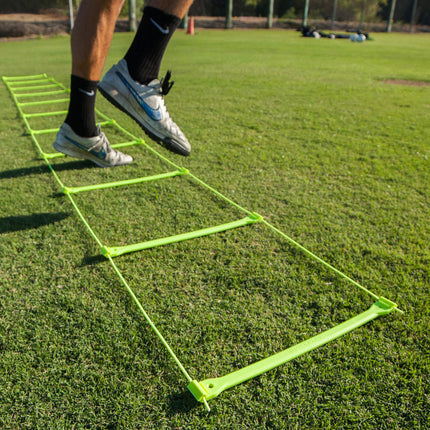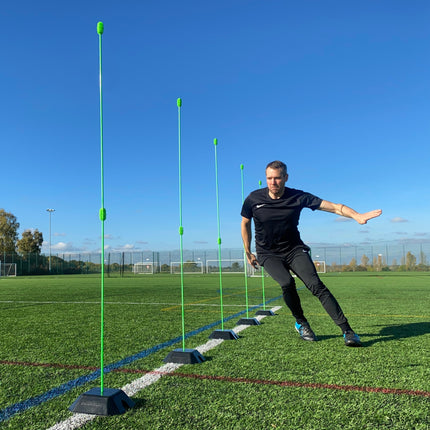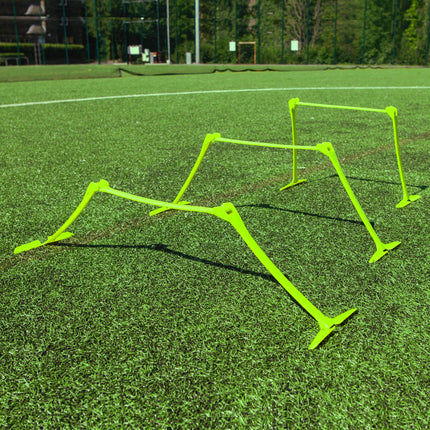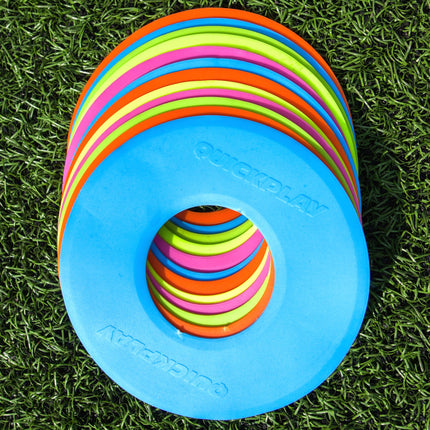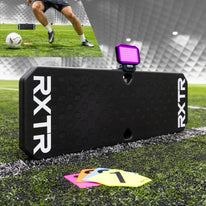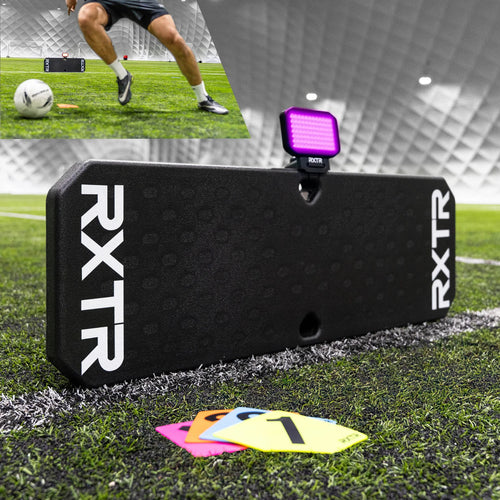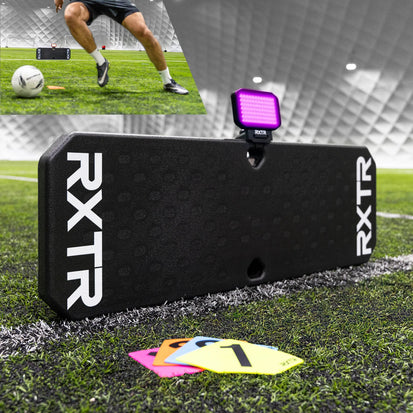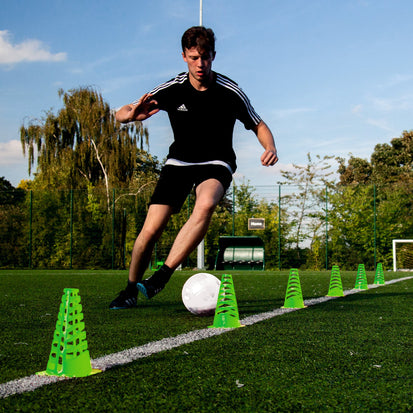I’m going to share a secret with you. The best Soccer players in the world know that the key to their success and number of games won happens during the off-season with proper training and conditioning. Off-season training is essential for soccer players of all levels, from beginner to professional. It is the best time to focus on developing your skills, strength, conditioning and mental toughness. It not only helps you stay fit and in shape but also improves your performance and tactical knowledge of the game.
When your season ends you should take two weeks off. TAKE TWO WEEKS OFF!
You need to let your body and your mind rest and recover. Watch movies, read books, rest and relax. Recovery is all about rest, and rest is all about recovery!
There are several types of fatigue that happen during the season. One obvious one is soreness or injury. This is called mechanical or physical fatigue. Mechanical fatigue is the wear and tear on your muscles and support structures, like tendons, ligaments, bone and fascia. Another one is Metabolic fatigue. This happens as a result of “low battery” or a depletion of your energy storage.
There are also other types of fatigue that are harder to recognize. Neurological fatigue is the wear and tear on your nervous system, this happens as a result of crazy game schedules, traveling to tournaments, juggling school and sports, etc. Another difficult type of fatigue to identify is Psychological fatigue. This happens when you hear bad news, have relationship issues, have trouble with your teammates, or are having struggles at home, etc.
All of these stressors cause fatigue and inhibit you from performing at your best. These are reasons why the two weeks of rest are so important. It’s important to know about these types of stressors, but let’s focus this conversation on recovering from mechanical or muscle fatigue.
MUSCLES HEAL IN PHASES
After you breakdown the muscle tissues during an extensive season they need time to heal or recover. They go into a Repair phase. In this phase your body cleans away the overused and damaged tissues. Once this is complete, your body begins to create new muscle fibers, and so begins the Remodeling phase. Giving your body two weeks of rest may ensure that your body is healed, healthy and ready to begin your off-season training.
GOAL SETTING
Author, Lewis Carroll illustrated this concept best in his novel, Alice Adventures in Wonderland. Alice, comes upon a crossroad and doesn’t know which way to go. She asks the Cheshire Cat which way she should go. The Cheshire Cat asks her where she is going. She says that she doesn’t care. The cat then tells her, then it doesn’t matter which way she goes. This profound interaction is the reason why we set goals. If we don’t know where we are going, then it doesn’t matter what we do.
It is very important to set off-season goals. Take a minute and really think about where you want to go by writing down what you want to work on. It can be speed, agility, thinking faster, making better decisions, dribbling, shooting accuracy etc. One you have your goals set, you need to establish a baseline. Without a baseline you can’t know where you are at. You need a starting point. Make sure to set a base-line at the beginning of each off-season by measuring the techniques, exercises, or drills you want to improve. These should be your goals. Make sure to measure them again before the season starts. This is how you will know if your training program was effective or not.
Off-season training can include running drills, strength training exercises, agility and coordination drills, speed training, ball handling and even flexibility and balance. Regardless of position or level of play, you should develop an off-season training regimen tailored to accomplish the goals that you set. This is called training with intention. Without intention, you are just like Alice, walking aimlessly in Wonderland.
OFF-SEASON TRAINING
My advice for a beginner or novice player is to train three to four days per week for 30 – 45 minutes, and for a very serious player, four to five days per week for 1 - 2 hours per day. Make sure to give yourself one to two days off during the week for adequate rest and recovery.
One benefit of off-season soccer training is leveling up your fitness. With regular quality workouts, you can improve your endurance while reducing fatigue over the course of a match. A well-rounded fitness program will help you build strength, speed, power and agility which are key components to becoming a great soccer player.
Some of the tools that I use as a strength and conditioning coach when training my players are cones, hurdles, ladders, poles, and resistance bands. Training with this type of performance gear can be the difference between an effective, engaging program and a generalized and dull program.
Another important aspect of off-season soccer training is an improved skill level. Exercises focused on ball control, shooting accuracy, footwork techniques and passing accuracy can all be part of an effective soccer training program. You can even practice specific scenarios such as first touch dribbling, attacking moves or defending tactics to be more prepared for match situations.
Rebounders, goals, and passing and finishing targets and nets are tools that can enhance and fine-tune the skills necessary for you to accomplish your goals. One company that I trust and purchase gear from is QUICKPLAY. They have a great assortment of performance and skill training products that are affordable, portable and durable.

Off-season training can also help you learn how to think strategically on the pitch. Various drills and exercises can reinforce good decision-making, active-thinking, and playing smarter.
Off-season training is an invaluable tool for soccer players like you wishing to increase you physical and cognitive fitness levels as well as become a better tactician on the pitch. By taking advantage of the right products and resources, athletes at every level have plenty to gain from investing time into improving their game during the off-season months.
In summary, off-season training is a great way to improve your soccer game. Set goals, establish baselines and measure progress, train with intention, level up your fitness and build strength, speed, power and agility. Practice specific scenarios and use performance tools such as rebounders, goals and passing targets to fine-tune your skills. Don’t forget to include cognitive drills that help you think smarter on the pitch! If you are willing to put in the work during the off season, then you will be sure to reap the rewards come match day! Good luck! Now go out there and show them what you’re made of!
- Michael Cummings
www.coach-cummings.com
"Michael Cummings is a strength and conditioning coach in San Diego, CA. For more than 20 years he has coached Olympic and professional athletes to youth athletes. He is also a certified Rehabilitation Specialist and Brain Trainer. He is passionate about upgrading the performance of all athletes."
